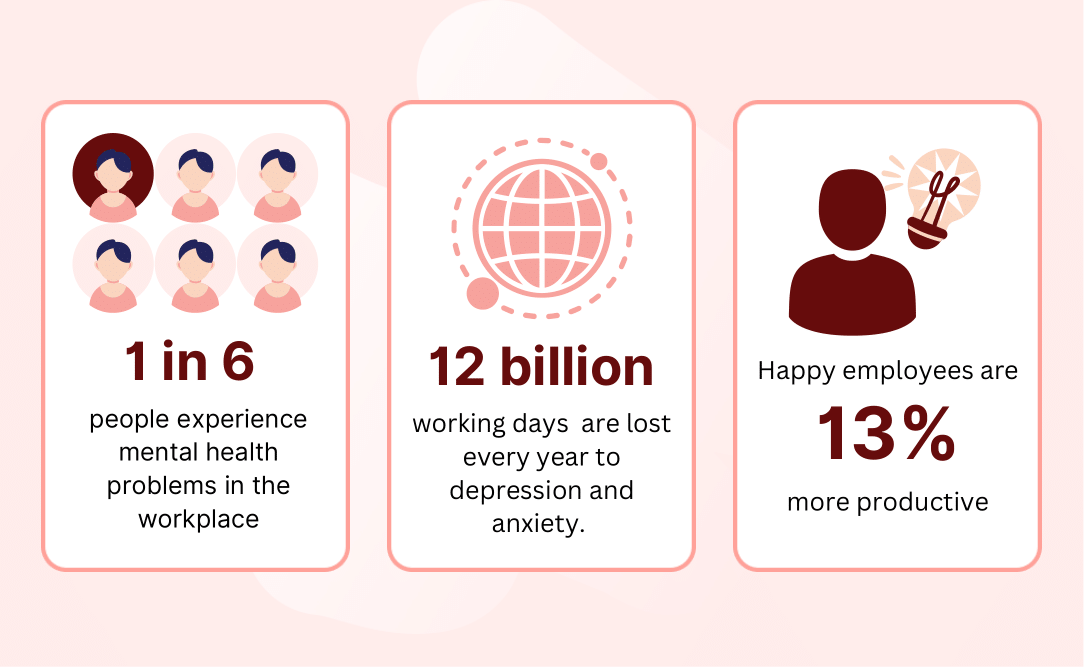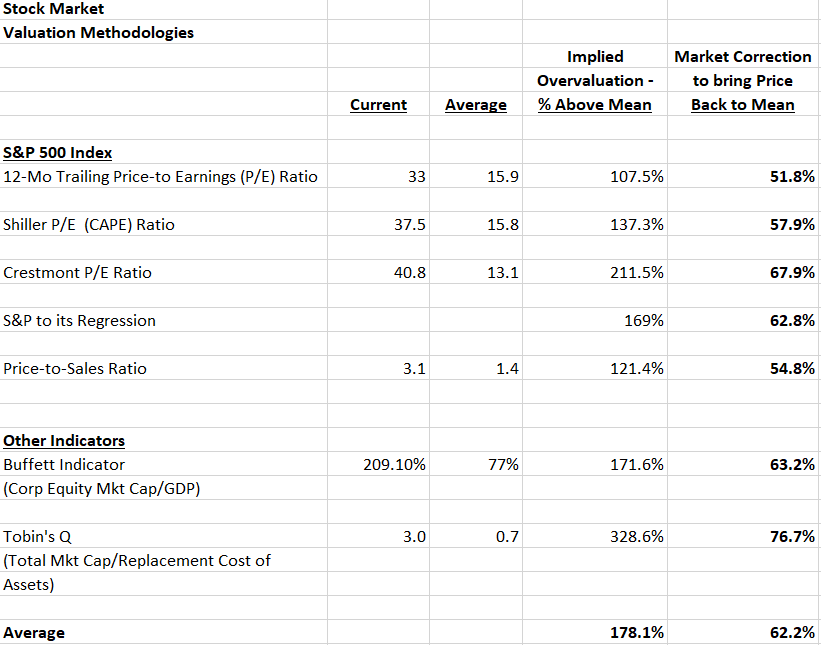Mental Health In The Workplace: Policy Impacts On Productivity And Performance

Table of Contents
The Link Between Mental Health and Workplace Productivity
A healthy workforce is a productive workforce. The connection between mental health and workplace productivity is undeniable. Investing in employee mental well-being directly impacts the bottom line, improving efficiency and reducing costs associated with poor mental health.
Reduced Absenteeism and Presenteeism
Supportive mental health policies significantly reduce both absenteeism (days off due to illness) and presenteeism (being at work but underperforming due to illness or stress). By fostering a culture of understanding and providing flexible options, companies can keep their employees healthier and more engaged.
- Flexible work arrangements: Offering flexible hours, remote work options, or compressed workweeks can help employees better manage their time and reduce stress.
- Generous sick leave: Providing ample paid sick leave encourages employees to take the time they need to recover, preventing presenteeism and further health complications.
- Mental health days: Explicitly offering mental health days normalizes seeking help and reduces the stigma associated with mental health concerns.
Studies show a strong correlation between mental well-being and reduced absenteeism. For example, a study by the American Psychological Association found that employees with access to mental health resources took fewer sick days.
Enhanced Employee Engagement and Morale
A positive and supportive work environment is crucial for boosting employee engagement and morale. When employees feel valued and understood, they are more likely to be motivated, productive, and committed to their work.
- Employee Assistance Programs (EAPs): EAPs provide confidential counseling, therapy, and other support services to employees, addressing mental health concerns proactively.
- Mental health training for managers: Equipping managers with the skills to recognize and support employees struggling with mental health issues is essential.
- Open communication channels: Creating a safe space for employees to discuss their mental health concerns without fear of judgment or reprisal is vital.
Increased employee engagement leads to higher retention rates, reduced turnover costs, and improved overall productivity. A supportive environment fosters loyalty and a sense of belonging.
Improved Employee Performance and Creativity
Reduced stress and improved mental well-being directly translate into higher-quality work and increased innovation. Employees who feel supported and cared for are more likely to be creative, focused, and productive.
- Stress management workshops: Providing resources and training on stress management techniques helps employees develop coping mechanisms to navigate workplace pressures.
- Mindfulness programs: Mindfulness practices can improve focus, reduce anxiety, and enhance overall well-being.
- Focus on work-life balance: Promoting healthy boundaries between work and personal life reduces stress and burnout, leading to improved performance.
Data consistently demonstrates the link between mental health and improved performance metrics. Employees with better mental health often exhibit higher levels of concentration, problem-solving skills, and overall job satisfaction.
Effective Mental Health Policies in the Workplace
Creating a supportive and proactive workplace environment requires a multifaceted approach, encompassing cultural shifts and practical implementations.
Creating a Supportive and Inclusive Workplace Culture
A culture of open communication, empathy, and understanding is paramount. This requires a conscious effort to dismantle the stigma surrounding mental health and create a safe space for employees to seek help without fear of judgment.
- Mental health awareness campaigns: Regular campaigns raise awareness about mental health issues and available resources.
- Training on recognizing the signs of mental health issues: Equipping employees with the knowledge to identify warning signs in themselves and colleagues is crucial for early intervention.
- Zero-tolerance policy for stigma: Clearly communicating a zero-tolerance policy for discrimination and stigmatization sends a powerful message of support.
Leadership plays a crucial role in fostering a positive mental health culture. Leaders must model healthy behaviors, openly discuss mental health, and actively champion mental well-being initiatives.
Implementing Robust Employee Assistance Programs (EAPs)
Accessible and confidential EAPs are critical for providing employees with the support they need. EAPs offer a range of services designed to address mental health concerns and promote overall well-being.
- Counseling and therapy: EAPs provide access to licensed therapists and counselors, offering confidential support for various mental health challenges.
- Stress management resources: EAPs often provide resources such as workshops, online programs, and self-help materials to equip employees with stress management skills.
- Work-life balance resources: EAPs may offer resources and guidance to help employees maintain a healthy balance between their work and personal lives.
Promoting EAP utilization is essential. Make sure employees are aware of the services available and feel comfortable accessing them.
The Role of Management Training in Mental Health Support
Managers play a crucial role in identifying and addressing mental health concerns within their teams. Appropriate training equips them with the skills to support their employees effectively.
- Recognizing warning signs: Training should focus on equipping managers to identify subtle signs of mental health struggles in their team members.
- Fostering supportive conversations: Managers should learn how to initiate supportive conversations with employees who may be struggling, creating a safe space for disclosure.
- Referring employees to appropriate resources: Managers need to know how to guide employees towards appropriate resources, such as EAPs or external mental health professionals.
Empathy and understanding are crucial components of effective management training. Managers need to learn how to approach these sensitive topics with compassion and respect.
Measuring the ROI of Mental Health Policies
The benefits of investing in workplace mental health are significant and measurable. Quantifying the impact demonstrates the clear return on investment.
Quantifiable Metrics for Success
Several key metrics can be used to evaluate the effectiveness of mental health policies.
- Reduced absenteeism rates: Track the number of sick days taken by employees before and after implementing mental health initiatives.
- Increased employee satisfaction scores: Regular employee satisfaction surveys can assess the impact of policies on employee morale and well-being.
- Improved productivity metrics: Measure improvements in output, efficiency, and quality of work following the implementation of mental health policies.
- Lower turnover rates: Track employee retention rates to see how mental health initiatives impact employee loyalty and commitment.
Demonstrating the Business Case for Investment
The return on investment (ROI) of effective mental health policies is substantial. Reduced absenteeism translates into lower labor costs, while increased employee retention minimizes recruitment and training expenses. Improved productivity and innovation lead to increased revenue and market competitiveness. A positive company reputation attracts top talent and strengthens brand loyalty.
Conclusion
Investing in mental health in the workplace directly impacts productivity and performance through reduced absenteeism, increased engagement, and improved creativity. Effective policies, including robust EAPs, supportive leadership, and a positive work culture, are essential. Prioritize mental health in the workplace. Implementing effective mental health policies is not just ethically responsible, it's a strategic investment in your workforce’s well-being and your company’s bottom line. Start improving your workplace mental health strategies today!

Featured Posts
-
 Eyd Pr Kshmyry Nwjwan Ky Shhadt Bharty Ryasty Dhshtgrdy Ky Mdhmt
May 02, 2025
Eyd Pr Kshmyry Nwjwan Ky Shhadt Bharty Ryasty Dhshtgrdy Ky Mdhmt
May 02, 2025 -
 Mental Health In The Workplace Policy Impacts On Productivity And Performance
May 02, 2025
Mental Health In The Workplace Policy Impacts On Productivity And Performance
May 02, 2025 -
 Nvidia Ceos Plea To Trump Revise Ai Chip Export Rules
May 02, 2025
Nvidia Ceos Plea To Trump Revise Ai Chip Export Rules
May 02, 2025 -
 Technical Failure Strands Passengers On Kogi Train Route
May 02, 2025
Technical Failure Strands Passengers On Kogi Train Route
May 02, 2025 -
 From Northumberland To The Globe A Handmade Boats Circumnavigation
May 02, 2025
From Northumberland To The Globe A Handmade Boats Circumnavigation
May 02, 2025
Latest Posts
-
 Tufts Student Rumeysa Ozturk Freed From Ice Detention Judges Ruling
May 10, 2025
Tufts Student Rumeysa Ozturk Freed From Ice Detention Judges Ruling
May 10, 2025 -
 Judge Orders Release Of Detained Tufts Student Rumeysa Ozturk
May 10, 2025
Judge Orders Release Of Detained Tufts Student Rumeysa Ozturk
May 10, 2025 -
 Stock Market Valuation Concerns A Rebuttal From Bof A
May 10, 2025
Stock Market Valuation Concerns A Rebuttal From Bof A
May 10, 2025 -
 Are High Stock Market Valuations A Concern Bof As Analysis
May 10, 2025
Are High Stock Market Valuations A Concern Bof As Analysis
May 10, 2025 -
 High Stock Market Valuations Bof A Explains Why Investors Shouldnt Panic
May 10, 2025
High Stock Market Valuations Bof A Explains Why Investors Shouldnt Panic
May 10, 2025
